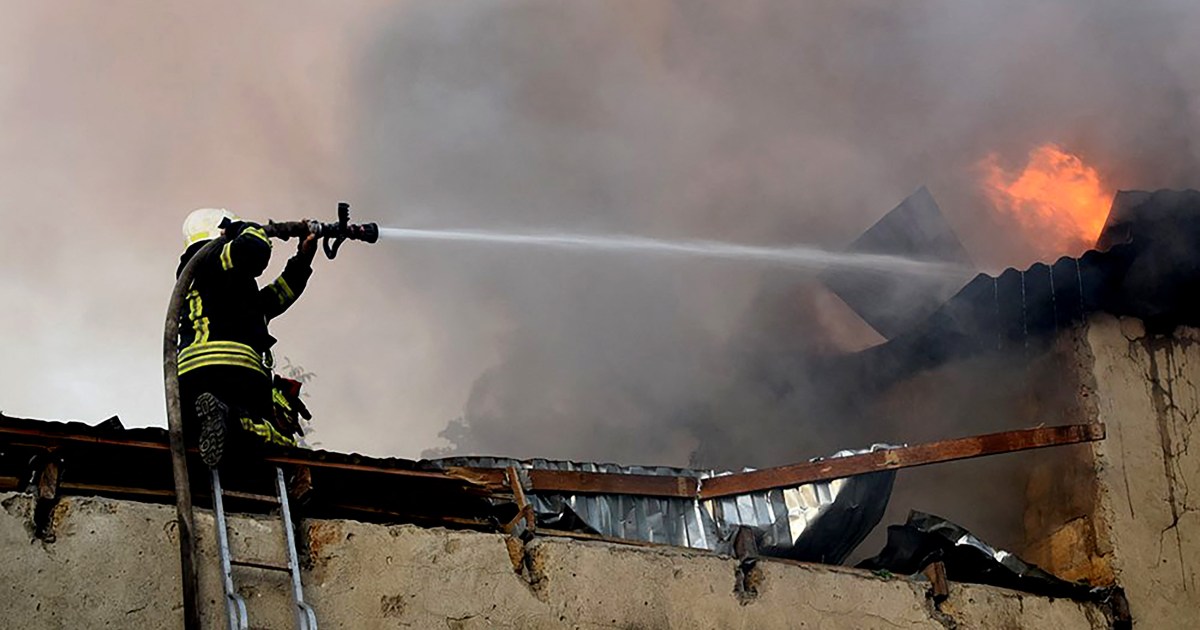Russia-Ukraine crisis: What’s next for global energy prices? | Energy
EXPLAINER
Russia’s invasion of Ukraine spells higher energy prices worldwide as oil rockets past $100 a barrel.
Russia’s invasion of Ukraine spells higher prices at the pump for consumers worldwide.
Oil prices surged to their highest level since 2014 on Thursday after Russian President Vladimir Putin ordered a full-scale military assault on Ukraine, prompting widespread international condemnation.
Brent crude futures jumped 5.4 percent to brush past $100 a barrel for the first time since September 2014.
Many analysts expect prices to rise much higher, amid fears of major disruption to the global energy supply.
“The next day will be quite critical – will definitely see prices exceeding 100/bps in the coming weeks,” Carlos Casanova, senior economist for Asia at UBP in Hong Kong, told Al Jazeera.
“In case supply from the US or talks in Vienna don’t go as planned, this could result in further appreciation pressures in the $150-170 range,” Casanova said, referring to talks in Vienna aimed at reviving the Iran nuclear agreement, which would provide a fresh boost to supply.
“The impact will be felt via sentiment and rising global inflation.”
‘Severe sanctions’
United States President Joe Biden said on Thursday Washington and its allies would impose “severe sanctions” on Moscow.
The Biden administration earlier announced sanctions against a firm building the $11bn Nord Stream 2 gas pipeline, which is not yet in operation, after signalling sanctions would not be aimed at Russia’s energy sector.
Even sanctions not specifically aimed at the energy market, however, could indirectly crimp exports of oil and natural gas or prompt Moscow to retaliate by limiting supply.
War in Ukraine could also disrupt key pipelines in the country that supply Europe with natural gas.
Jeffrey Halley, senior market analyst for Asia Pacific at OANDA, said he expected prices to spike further once the market digested the full implications of the Russian invasion.
“A move above $100 appears inevitable, and I believe a move by Brent to $120.00 is not out of the question, as per my previous comments ad nauseum,” Halley said in a note on Thursday.
Russia is the world’s third-biggest oil producer and second-biggest producer of natural gas, ranking among the top energy suppliers to the US and China, the world’s top two economies.
In 2020, Russia provided 7 percent of the US petroleum and crude oil imports, making it the country’s third-biggest supplier alongside Saudi Arabia.
Energy prices had already been soaring in recent months amid a confluence of factors, including the pandemic, limited supply and growing tensions between Russia and Ukraine.
In the US, which is grappling with its highest inflation since the early 1980s, the average petrol price nationwide is $3.52 per gallon (3.8 litres), up nearly 90 cents since last year, according to GasBuddy.
Trinh Ng, a senior economist at Natixis in Hong Kong, said “people should expect higher prices.”
“For net oil importers, prices will increase. The question is who will absorb it? As in, will governments subsidise households and corporates?” Trinh told Al Jazeera.
“Irrespective, it will be costly. My guess is that some countries will try to keep the lid on prices through subsidies to dampen the impact but overall inflationary pressures will rise, especially in countries with demand improving such as Southeast Asian and India.”




